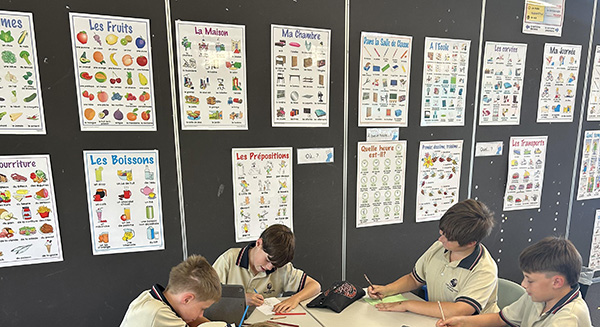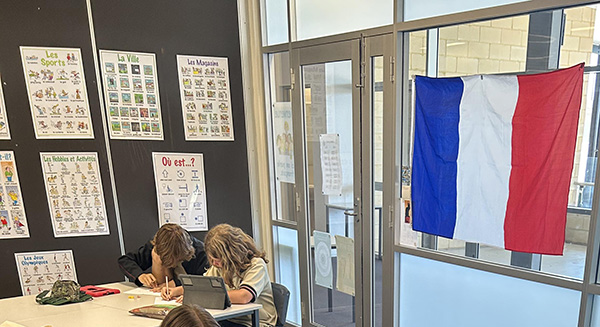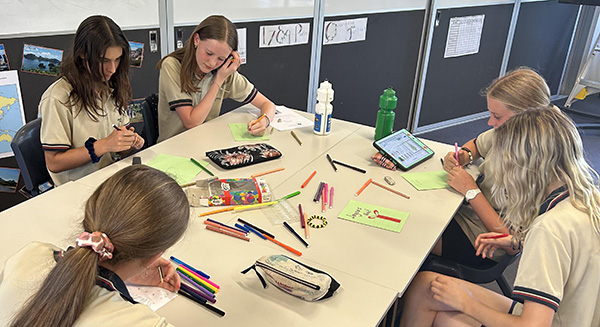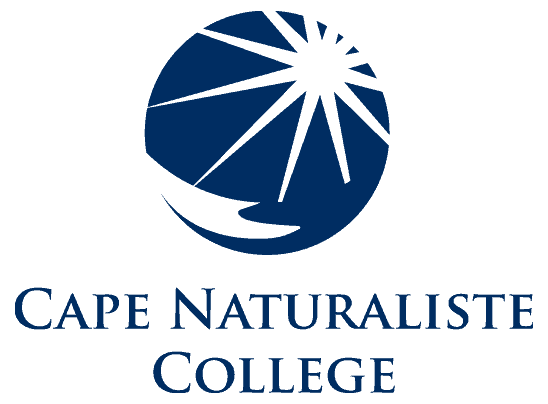
FACULTIES
Languages
Students at Cape Naturaliste College will study a language in Year 7 and have the option of extending their language studies through to Senior School. Since 2022, the college has been offering French; the fifth most spoken language in the world, spoken in 40 different countries and territories. The skills learnt in a Languages classroom extend far beyond the contents of the curriculum. Students experience a range of enriching experiences both inside and outside the classroom; utilising cross-curricula skills of numeracy and literacy; aiding their reading, writing and language comprehension, as well as recognising and understanding patterns and sequencing.
In addition, learning another language can encourage:
- Improved communication skills
- Working in teams
- Increase their critical awareness
- Goal setting






